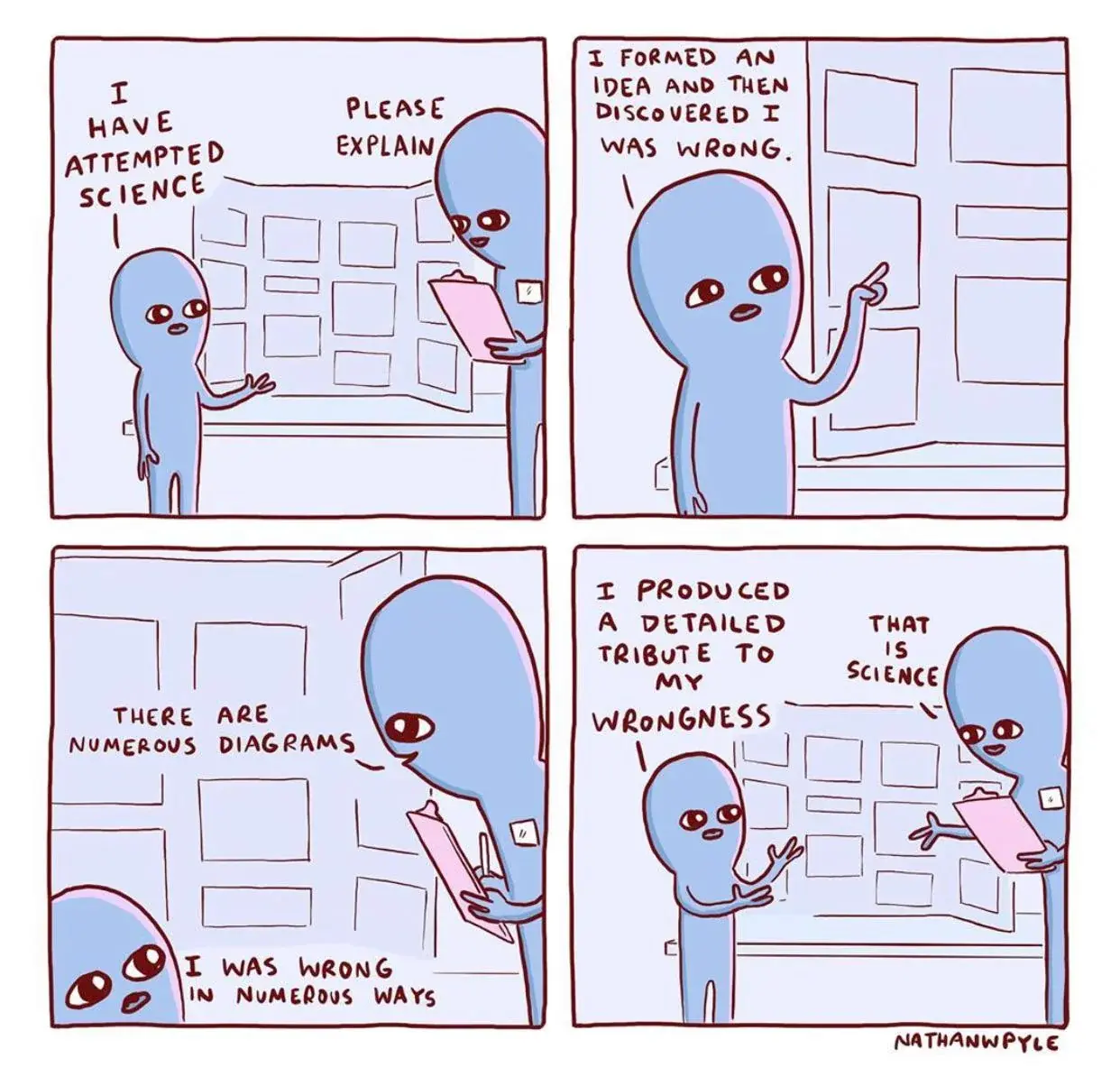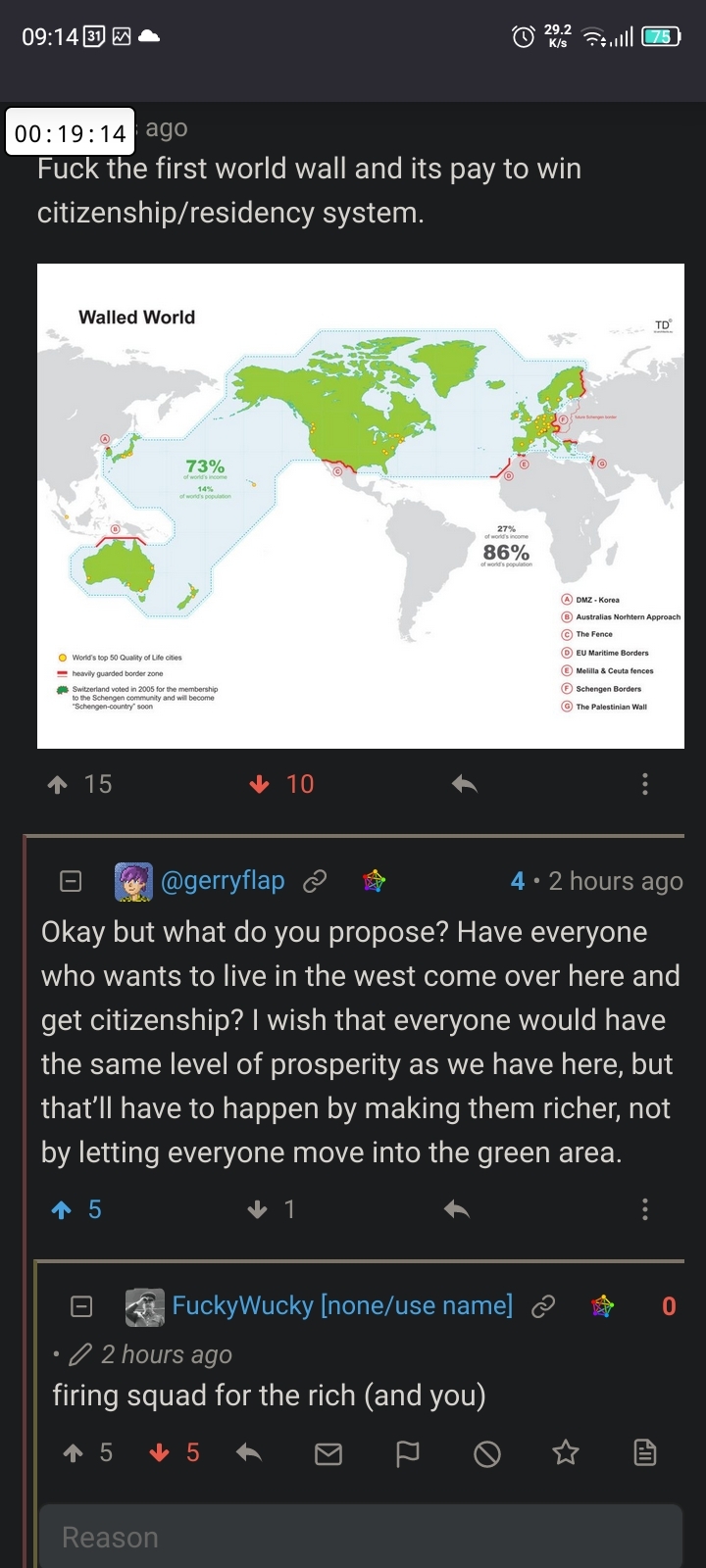There is never surplus power with a network of a few "turn it on as needed" intensive industrial uses like haber-bosch reactors for ammonia, dessalination plants and electrolysis for aluminium or other metals...right?
Gsus4
the magic of "consistency" aka don't c/leopardsatemyface
At this point what they learn in business schools is the full bestiary of legal and illegal tricks and scams you can use to extract money from us cattle and contribute as little as possible to the upkeep :(
Haha, was it the endless cliff next to the gun island? Been there lmao
::: title
::: No luck yet, what's the syntax?
Subnautica...when I was so immersed that I went too deep...didn't have enough time to return to the surface to breathe...and then looked up in anguish and saw that dreaded refraction "circle" hundreds of meters above you... THE DEEP HAS YOU, THERE IS NO ESCAPE
It's about return on energy. Fossil fuels return 20x what you invest it's essentially free energy.
(edit: roughly, this translates to how many people are free to do things with the work of one, if every person lives alone, it's 1, if each person has a personal slave/robot, it's around 2, we want to stay well above 2. Modern society has 19 people doing all sorts of non-survival things for each one farming and collecting resources because fossil is so "cheap")
Renewables can reach 5-10 at best, which is not so bad (medieval was around 1.3, pre-industrial with slavery was around 1.8), so you can do it, but it will have to reshape society, which will be fine, if we know what we're doing or can at least imagine what we are aiming for to avoid disappointment. It's hard to be utopian going backwards.
This whole debate started with carbon footprints and carbon pricong, because I believe that creating a market can help the less virtuous among us to use their greed to help solve the problem of public consent in a consumerist society without devolving into a dictatorship.
But yea, let's aim for that energy return of say... 7 and try to imagine what such a society would look like. A return to slower shipping by sail again...more solar boilers for all hot water...solar desalination...peak-solar hydrogen for fertilizers and airplanes...more compact cities with mass transit and bikes, lots of working from home, more fixing things DIY...a return from cities to the countryside and decentralisation would help, but only if those communities were more self-sustained and local, with 2x more power to farming, mining and wind/solar communities (meaning potentially smaller countries)...now I could describe all the potential setbacks of all of those points, but I won't, because this is solarpunk and we need more imagining of what things are going to be like when we succeed...not so much the year 500 :)
It's not shying from it, many just don't see a way forward that doesn't involve a significant risk of massive suffering like starvation, war, authoritarianism if one or two things don't go exactly as the utopians would expect (like most revolutions).
This is not a utopian project, this is a "controlled landing" of a large spaceship from a 200-year old addiction to fossil-fueled growth: you need everyone on board and an awareness of the risks by everyone and possibility of relapses, calm and a notion of what is at stake, but there is still a chance that we'll fuck up, given our history :/
No, they mean the Haber process that requires energy-intensive (can mass-solar do it?) hydrogen to convert nitrogen back into ammonia.



fair enough, makes sense, I was trying to think outside the box of "storing" the power as pumped hydro or batteries...but I guess where they exist, these industries still welcome the negative prices when they happen :)